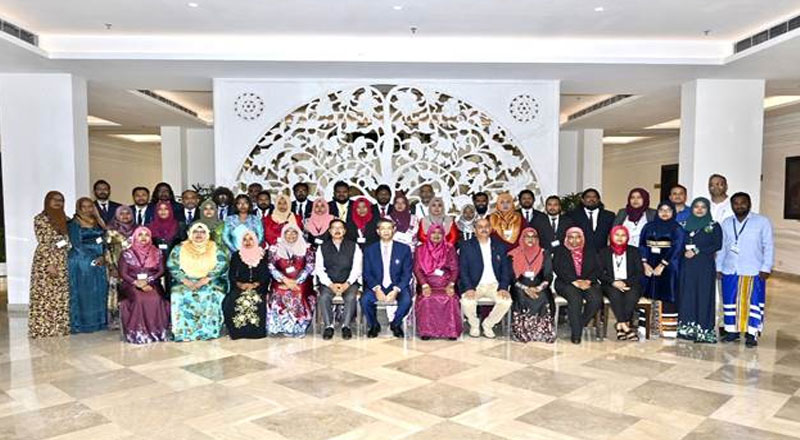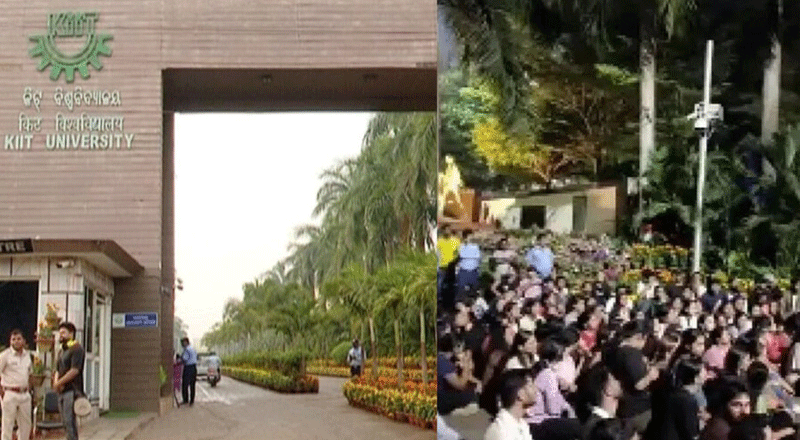The 2-week Capacity Building Programme (CBP) for civil servants of Maldives organised in partnership with the Ministry of External Affairs (MEA) concluded on 23rd June, 2023. NCGG has signed MoU with the Government of Maldives to enhance the skills and capabilities of 1,000 civil servants in the field of public administration and governance by 2024. As part of the agreement, NCGG has already imparted training to 685 officers from Maldives. The successful conclusion of the capacity building programme for civil servants of Maldives signifies the convergence of shared values and spirit of collaboration, serving as a testament to Prime Minister shri Narendra Modi’s ‘neighbourhood first’ approach.
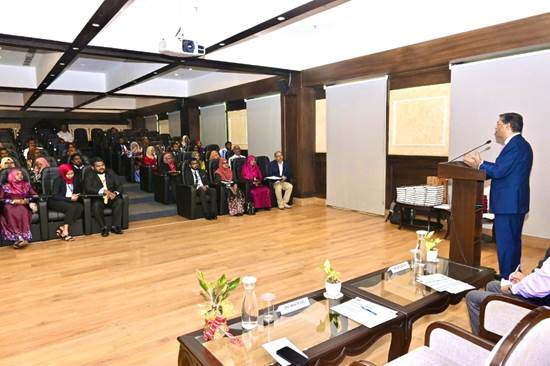
The valedictory session was presided over by shri Bharat Lal, Director General, National Centre for Good Governance. With a firm focus on improving the quality of life for citizens, shri Bharat Lal urged the officers to capitalize on their learnings and translate them into tangible actions that drive positive change and holistic development. By embracing innovative approaches and incorporating lessons gleaned from the programme, the officers can effectively contribute to elevating the well-being and welfare of the people they serve. Recognizing Prime Minister shri Narendra Modi’s unwavering commitment to ensuring necessities for all citizens, such as housing, cooking gas, education, healthcare, financial services, and skill development, among others, he highlighted the need for officers to emulate these initiatives and make significant strides in enhancing the ease of living. The DG emphasized the importance of working with speed and scale and leaving no stone unturned in their pursuit of efficiently delivering these fundamental amenities.
A well-educated and skilled workforce forms the backbone of a thriving economy, fostering innovation, productivity, and competitiveness in the global arena. Mr. Bharat Lal emphasized that civil servants hold a unique position of responsibility, as they are instrumental in designing and implementing policies that impact the education sector. He urged them to provide equitable access to education, address gaps in learning opportunities, and foster a holistic approach to skill development.
The DG stressed the importance of creating an enabling environment for women through the provision of essential facilities, such as 24-hour water and power supply, and adequate sanitation facilities. Empowering women through the provision of basic amenities not only boosts economic outcomes but also fosters gender equality. By ensuring their equal participation in economic activities, societies can unlock the full potential of their human capital and drive sustainable growth, he said.
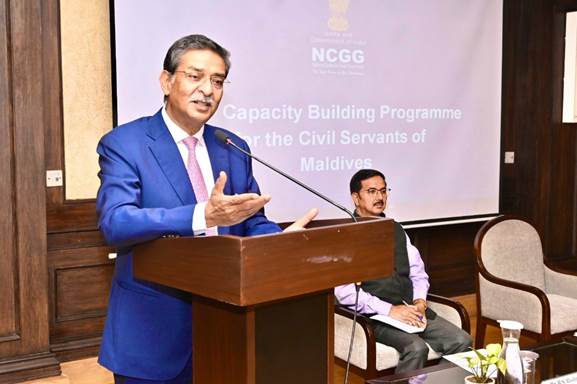
He placed significant emphasis on the need for civil servants to harness the potential of the digital revolution and embrace the latest IT innovations as a means to advance digital governance. The adoption of digital tools and platforms can enable faster decision-making, improved data management, and increased accessibility to government services, thereby enhancing the overall efficiency and effectiveness of governance. Recognizing their role as change agents and their deep understanding of local contexts, he expressed confidence in their ability to successfully implement policies and achieve favourable outcomes in their respective domains.
Giving the overview of the programme, Dr. B. S. Bisht, course coordinator said that in the 24th capacity building programme, NCGG shared various initiatives taken in the country. such as changing paradigm of governance, centralised public grievances redressal and monitoring system, India Maldives relations, Aadhar: a tool of good governance, implementation of public policies, women inclusive governance, innovation in public administration, Digital governance and public service delivery, Smart City development, housing to all, leveraging digital technology, best practices from various development schemes, urban governance, low cost desalination for drinking water, Climate Change, tourism, Jal Jeevan Mission, e-governance and digital India UMANG, leadership, coordination and communication, Mudra Yojana, poverty elimination initiatives, health care governance, sanitation and public health behaviour, circular economy, skill India, anti-corruption strategies, India’s policy towards Indian Ocean region among others.
The participants had the opportunity to engage in visits that were carefully curated to provide them with a comprehensive understanding of a diverse range of developmental projects and institutions. Among the notable visits, the participants had the opportunity to explore the Smart City in Dehradun, Central Information Commission, Pradhanmantri Sanghralaya which enriched their knowledge of the practical aspects of governance.
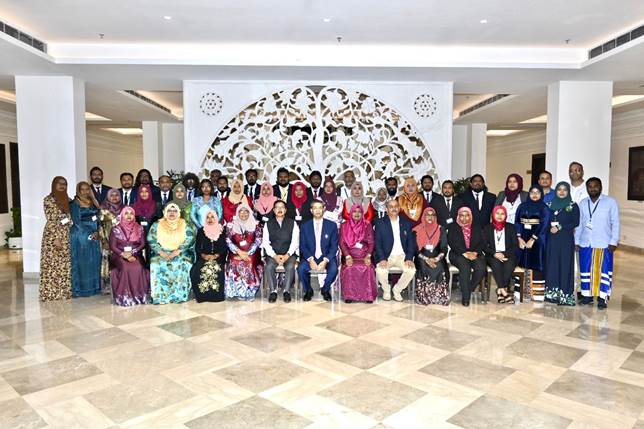
The 24th CBP was supervised by Dr. B. S. Bisht, course coordinator for Maldives, Dr. Sanjeev Sharma, co-course coordinator and the entire CBP team of NCGG. Their contributions to curriculum development, session coordination, and knowledge dissemination were instrumental in creating a comprehensive and impactful learning experience for the participants.


